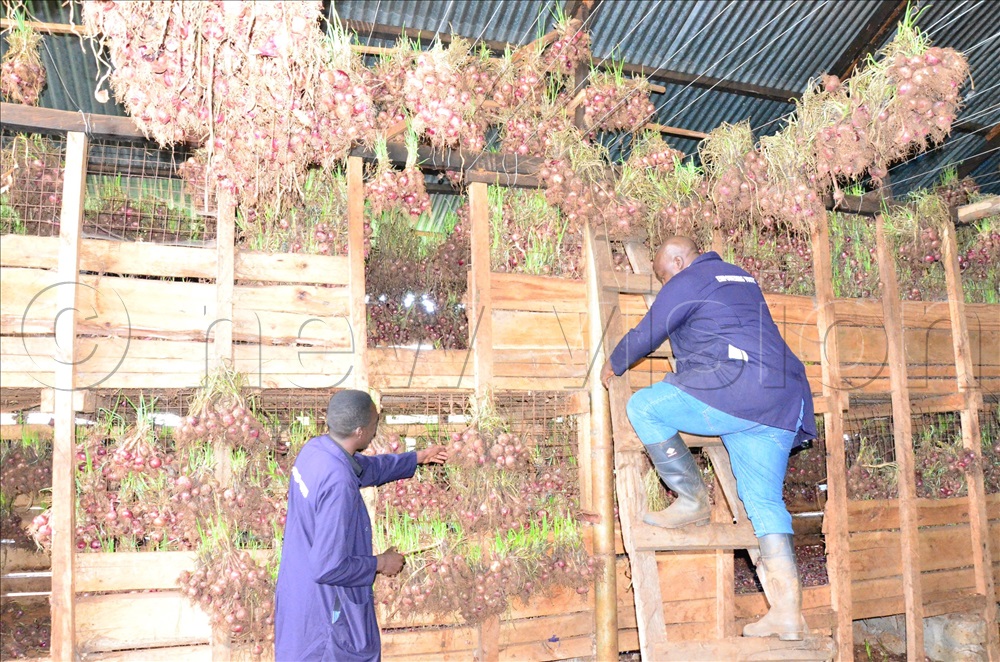By Umar Nsubuga
As onion prices plummet, many farmers and vendors are grappling with significant losses.
In Kapchorwa district, renowned onion farmer Isaac Malinga shares his strategies to minimise financial setbacks.
Meanwhile, Anna Kisakye, a vendor at Matugga market, offers practical advice for keeping onions fresh and marketable. Together, their experiences provide valuable lessons for anyone in the onion trade.
Malinga has spent years cultivating onions on his six-acre farm in Kapchorwa. Recently, he invested over sh3 million into his crop, only to find that market prices had plunged to sh500 per kilogramme, a price far below his production costs.
“With such prices, it’s a big loss,” he says.
“But instead of letting my onions rot or selling at a complete loss, I found ways to store them until prices stabilise.”
Malinga employs curing as a key method to preserve his onions. He starts by drying them in a well-ventilated shed to prevent direct sunlight, which can cause shrinkage and discolouration.
“Curing is essential because it hardens the onion skins, reducing moisture and preventing decay,” he explains.
Once the onions are dry, he stores them in mesh bags or well-aerated baskets to maintain airflow and further extend their shelf life.
“I have learned to be patient,” Malinga adds.

“Prices will rise again, and when they do, I will be ready to sell at a profit instead of a loss.”
Kisakye’s market expertise
Kisakye, a seasoned vendor at Matugga market, faces a different challenge keeping her stock fresh while waiting for buyers.
“Onions can rot quickly if not stored properly,” she says.
“But with the right methods, you can keep them for weeks, even months.”
Kisakye sorts her onions immediately after purchase, removing any damaged or bruised ones to prevent rot from spreading.
She stores the rest in a cool, dry space, avoiding plastic bags that trap moisture. “Good ventilation is key,” she emphasises. “If the onions can breathe, they last much longer.”
To further protect her onions, Kisakye occasionally uses traditional methods like spreading ashes over the stored onions, a technique known to absorb excess moisture and deter pests.
Both Malinga and Kisakye highlight the importance of proper handling and storage to mitigate losses during price fluctuations. Their advice is particularly timely as many farmers across Uganda struggle with similar challenges.
For Malinga, patience and preparation are vital.
“Curing onions gives me control over when to sell,” he says.
Kisakye, on the other hand, emphasises daily maintenance to ensure freshness and quality for her customers.





